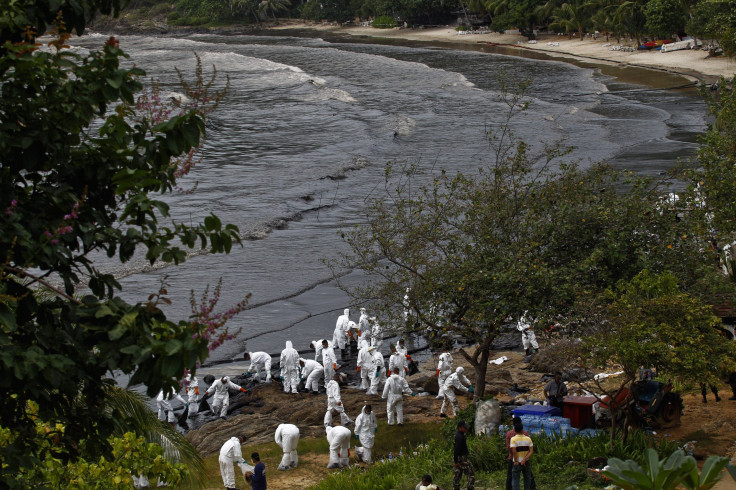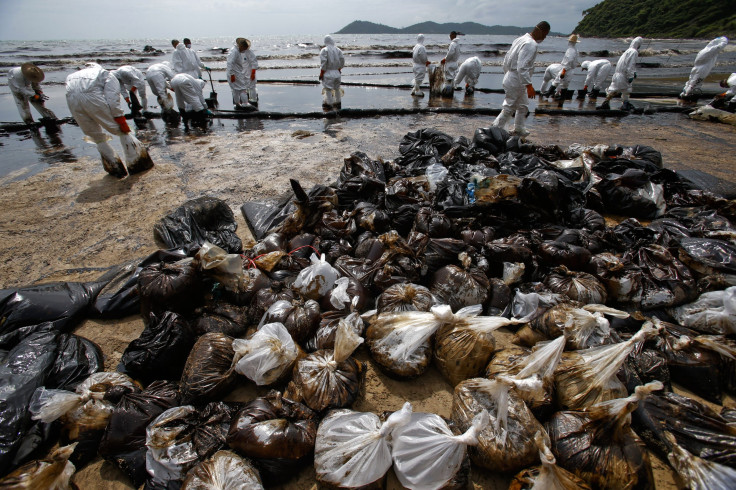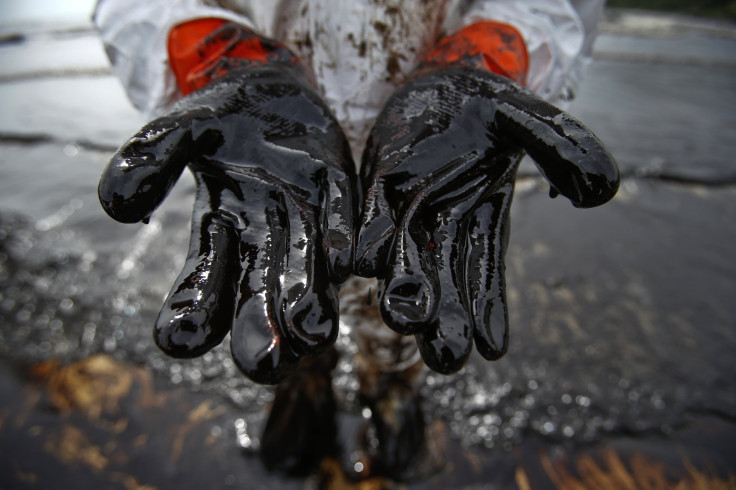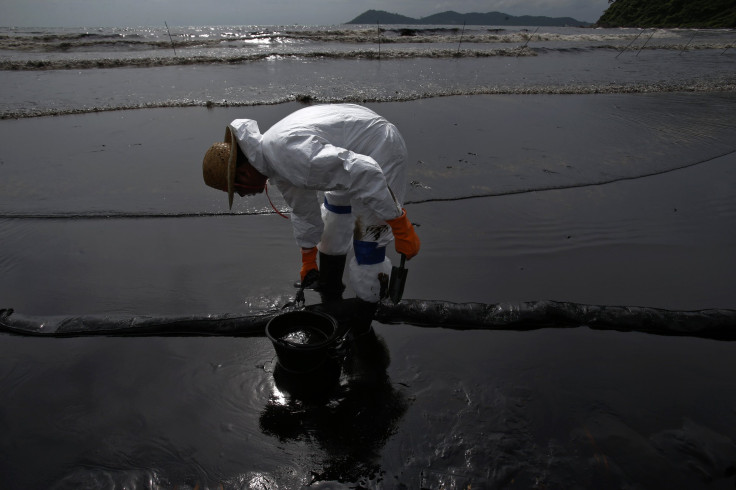Gulf Of Thailand Oil Spill Reaches Ko Samet Island, Popular Tourist Retreat

Mention Thailand and most travelers picture aquamarine waters and pristine bone-white beaches, but many tourists have been warned away from a popular island and national park this week after a pipeline operated by PTT Global Chemical sprung a leak Saturday, spilling an estimated 50,000 liters of oil into the Gulf of Thailand.
On Sunday, officials evacuated tourists from the oil-slicked waters off Ko Samet, a popular resort island in the Eastern Gulf Coast within easy reach of Bangkok. The company responsible for the leak said 10 ships and more than 600 navy personnel, environmental officials, local villagers and members of a special team flown in from Singapore were working around the clock to contain the spill and clean up at least one of the T-shaped island’s tarnished beaches.
“The top priorities right now are to get rid of the oil on the sand and the seawaters, and to make sure the spill doesn’t spread to other shores,” Rayong Province Deputy Governor Supeepat Chongpanish said Monday. “This is a very beautiful, white, sandy beach, so we want to make the spill go away as soon as possible.”
Ko Samet Island is a popular retreat for nearly 1 million foreign and domestic tourists each year, given its close proximity to the capital. Many Bangkok residents prefer Samet over the closer resort town of Pattaya due to its quieter atmosphere and status as a protected national park. Yet, images of its black beaches are likely to keep many visitors away in the immediate future.
Thick blobs of oil first washed up Saturday on Ao Phrao beach, about 35 kilometers (22 miles) away from the leaking pipeline. Supeepat said the spill’s effects have largely been contained to a 300-meter (990-foot) stretch of the western side of the island. Nevertheless, many hotel guests have cut their holidays short.
“We’ve had some hotel cancellations on Samet,” Chuchart Oncharoen, the tourism authority director for Rayong, told the Bangkok Post. “Whether this has a long-term impact on the island depends on how quickly PTT cleans up the mess.”
PTT Global Chemical, a subsidiary of state-owned oil and gas company PTT Plc., said it detected the leak at 6:50 a.m. Saturday local time when it transferred the crude oil from a tanker moored offshore into a pipeline located about 20 kilometers (11 miles) away from one of Southeast Asia’s largest refineries, the Map Ta Phut industrial estate.
The company issued a statement of apology Sunday, saying it was cooperating fully with the Thai government to work on the best way to remove the oil and restore the environment to its pristine condition. Some government officials, however, lashed out at PTT Monday, saying it had not only been dishonest about the extent of the leak, but had yet to come up with a clear plan to combat it.
Greenpeace, meanwhile, called on the government of Thailand to review its energy policy and cease oil exploration and drilling in the Gulf of Thailand. “The Gulf of Thailand, the nation's food basket, has long been under threat from oil spills along oil transport routes, at points of discharge and loading of oil carriers or from the several hundred oil drilling operations across the Gulf,” Greenpeace Southeast Asia campaign manager Ply Pirom said Monday.
Greenpeace noted that Thai waters had been the scene of more than 200 oil spills over the last 30 years, and added that they were not only a threat to the environment, but to the nation’s vital tourism industry. The activist group also urged PTT Plc. to conduct a rehabilitation assessment, and to bear all responsibility for the cost of restoring the natural environment.
A PTT Plc. subsidiary was also involved in the 2009 Montara oil spill in the Timor Sea, Australia’s worst offshore drilling accident. Last month, the company said it had “transformed safety processes and environmental systems,” which were validated by five independent reviews commissioned by the Australian government.



© Copyright IBTimes 2024. All rights reserved.






















